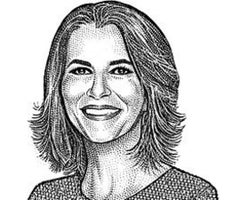MI SELECCIÓN DE NOTICIAS
Noticias personalizadas, de acuerdo a sus temas de interés

The latest Venezuelan effort to topple dictator Nicolás Maduro is a pivotal moment in Latin American history, as the international community is acknowledging.
Democratically elected National Assembly President Juan Guaidó took an oath to become Venezuela’s interim president on Wednesday, as prescribed by the country’s constitution. Within hours he was recognized by the U.S. and some 20 other democracies, 11 in Latin America. Other governments warned Mr. Maduro that he has to leave.
More than words are at work. Last week the Bank of England blocked Mr. Maduro from withdrawing $1.2 billion in gold reserves. On Friday the U.S. gave Mr. Guaidó control of Venezuelan government accounts at the Federal Reserve Bank of New York and other U.S.-insured banks.
Not since the fall of the Soviet empire has a nation risen with such fury and determination to throw off the yoke of socialism. And not since then has Marxist misery been so clear for all the world to see. Venezuelans are experiencing what millions of Russians, Chinese, Cubans and countless others have suffered. Destitute and angry, they want it to end.
How ironic that some American politicians, like Vermont Sen. Bernie Sanders and newly elected New York Democratic Rep. Alexandria Ocasio-Cortez want socialism for the U.S. The tide of history is going the other way.
The U.S. has promised the Guaidó government $20 million in humanitarian assistance. It is certainly needed. Venezuela’s socialist revolution, created by the late Hugo Chávez, has produced rising infant-mortality, malnutrition and even starvation. Running water, electricity and toilet paper are now luxuries. Venezuela suffers from hyperinflation, disease and rampant crime and corruption. Millions of hungry, jobless Venezuelans have fled to neighboring countries, the U.S. or Europe.
Venezuelans have made numerous attempts since 2002 to restore the liberties lost when Chávez used his majority backing to dissolve civil rights and a free press. But they were never able to persuade the military high command, infiltrated by Cuba, to break ranks with the dictator. If this time is different it’s because Mr. Maduro can no longer guarantee the interests of the top brass.
Mr. Guaidó is rumored to be backed by Venezuela’s military rank-and-file and midlevel officers. There are also reports that some commanders of detachments around the country no longer support Mr. Maduro.
The regime is unleashing repression and the international community wants to avoid more bloodshed. The U.S. has offered the military high command safe passage out of the country, and if international efforts to cut financial channels for the leadership are successful, many may find it an attractive option.
Over the weekend the European Union said it would recognize Mr. Guaidó as interim president if Mr. Maduro doesn’t agree to fair elections by Feb. 3. That seems dangerous and overly generous: This problem didn’t spring up last week.
Mr. Maduro claims he was elected in May for a second six-year term. The EU, the Lima Group-14 Western Hemisphere countries not including the U.S.-the Organization of American States and the Inter-American Commission on Human Rights all objected to that rigged election. The EU, the Lima Group and the Group of Seven refused to recognize the results.
Nevertheless, Mr. Maduro scheduled a swearing-in ceremony for Jan. 10. On Jan. 4 the Lima Group declared Mr. Maduro’s second term illegitimate and warned him not to proceed. He did anyway. On Jan. 10 Canadian Foreign Minister Chrystia Freelandwarned Mr. Maduro that he would not be recognized: “We call on him to immediately cede power to the democratically-elected National Assembly until new elections are held, which must include the participation of all political actors and follow the release of all political prisoners in Venezuela.”
Mr. Maduro says this is a U.S. conspiracy. But as a member of Canada’s Liberal Party and the lead negotiator of the bitter rewrite of the North American Free Trade Agreement, Ms. Freeland is hardly a Trump administration lackey. Her words speak to the horror of the Venezuelan crackup. From Chile to Brazil to France, Mr. Maduro is now the international symbol for human-rights abuse.
The tyrant isn’t entirely alone. Russia, China, Iran, Cuba, Bolivia, Nicaragua and Hezbollah stand with him. Havana runs the counterintelligence network charged with controlling the Venezuelan armed forces and brownshirts. Reuters reported Friday that Russia has flown an unspecified number of paramilitary contractors into the country. A new asymmetric war can’t be ruled out.
Over the weekend Mr. Maduro retracted his demand that U.S. diplomats leave Venezuela. But he continues to call for dialogue, a stall tactic that has brought the opposition nothing but misery and more repression.
The noose is tightening for chavismo but the regime has slipped it before. This time the stakes are much higher for both sides.
La empresa conjunta estadounidense estará en 50% en manos de un consorcio de nuevos inversionistas, incluidos Oracle, Silver Lake y MGX con 15% cada uno
MetaX, que controla 1% del mercado chino de chips de IA, prevé que las ventas de la empresa se dupliquen con creces este año debido al impulso de la autosuficiencia tecnológica
El presidente Trump sigue su gran ofensiva en el caribe contra maduro y ahora prohibió la entrada o salida de los buques petroleros de todos los puertos de Venezuela